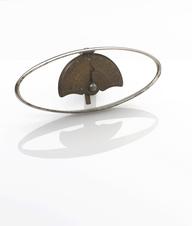

Paul Broca 1824 - 1880
- occupation:
- Anthropologist,
- Pathologist,
- Surgeon
- Nationality:
- French
- born in:
- Sainte-Foy-la-Grande, Dordogne, Aquitaine, France
Paul Broca was an innovative surgeon. He combined anthropology with medical research and practice, especially neurology. Throughout the 1850s he studied aphasia, conditions in which language is affected. In 1861 he became the first to demonstrate at autopsy that a speech defect was linked to a specific spot in the brain (known today as Broca’s area). Broca’s discovery saw renewed interest in the relationship between the physical brain and psychological and intellectual characteristics.
Broca founded the Anthropological Society of Paris, which linked comparative anatomy to anthropology, in 1859. He invented new instruments to measure physical differences, as he and his friend Alphonse Bertillon were convinced quantitative measurements revealed individual character and ability. While Bertillon identified individual criminals, Broca compared the average anatomy of different populations or ‘races’. Broca and other scientists practising anthropometric measurement believed the skull’s shape and size showed that Europeans were superior.
His conclusions about the relationship between physical difference and ability helped foster racist and sexist theories and have since been condemned and debunked.









